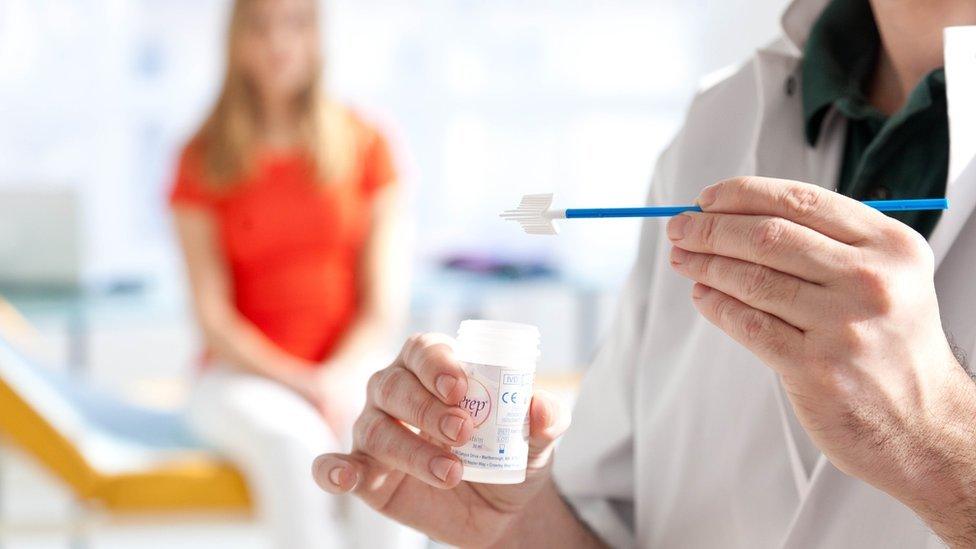CervicalCheck cancer test review 'finds huge failings'
- Published

The review into the cancer test scandal was led by Dr Gabriel Scally
The Irish government has accepted all 50 recommendations in the review into the CervicalCheck cancer test crisis.
Dr Gabriel Scally led the review after a smear test audit found 221 cervical cancer patients, 18 of whom died, may have benefitted from earlier treatment.
His report was presented to the cabinet on Wednesday and Health Minister Simon Harris said it has found huge failings.
He said it identified a huge breach of trust by the non-disclosure of clinical audits to the women affected.
Mr Harris added that the review found there was far too much clinical discretion.
The minister said the laboratories used to read the CervicalCheck scans are safe and capable of carrying out this work, according to the report.
However, Dr Scally did find that one laboratory in the US, no longer used by CervicalCheck, subcontracted the work to other companies.
But Mr Harris said this raised contractual rather than safety issues.

Simon Harris said he will hold meetings in the coming days to consider the next steps
The minister said the government would not make a "knee jerk" decision on whether or not to establish a public inquiry, known as a commission of investigation.
He said that, in the coming days, he would meet the women affected and opposition politicians to discuss the next steps.
The minister also said the report found no evidence that the Department of Health could have known the scale of the non-disclosure before April of this year.
He said he will look at setting up an Independent Patient Safety Council, which was not among the recommendations in the review.
Full implementation
The review's author, Dr Scally, said he did not think the commission of investigation was needed as he had managed to uncover what needs to be uncovered.
The recommendations include establishing a monitoring programme involving women and families affected to ensure Dr Scally's recommendations are implemented in full by the Health Service Executive (HSE).
That programme will also publish regular reports on progress.
Some of those affected by the controversy had a five-hour briefing with Dr Scally on Tuesday evening on his findings.

Vicky Phelan's court case sparked the cervical cancer screening controversy
The controversy came to light after Vicky Phelan, of Carrigeen, Annacotty, County Limerick, along with her husband Jim Phelan, sued the HSE and Clinical Pathology Laboratories Inc, Austin, Texas, over a smear test taken under the National Cervical Screening Programme CervicalCheck and analysed in the US laboratory.
Incorrect results
Ms Phelan was diagnosed with cancer three years after her smear test results of 2011 were incorrectly reported as clear of abnormalities.
By the time she had another smear test in 2014 she had cervical cancer.
Since then it has emerged that 221 women with cervical cancer should have received treatment earlier than they did.
Dr Scally's scoping inquiry in the CervicalCheck screening programme was set up to examine the non-disclosure of information to Ms Phelan and the apparent widespread practice of non-disclosure, and who knew this was happening.
- Published11 September 2018

- Published11 May 2018
